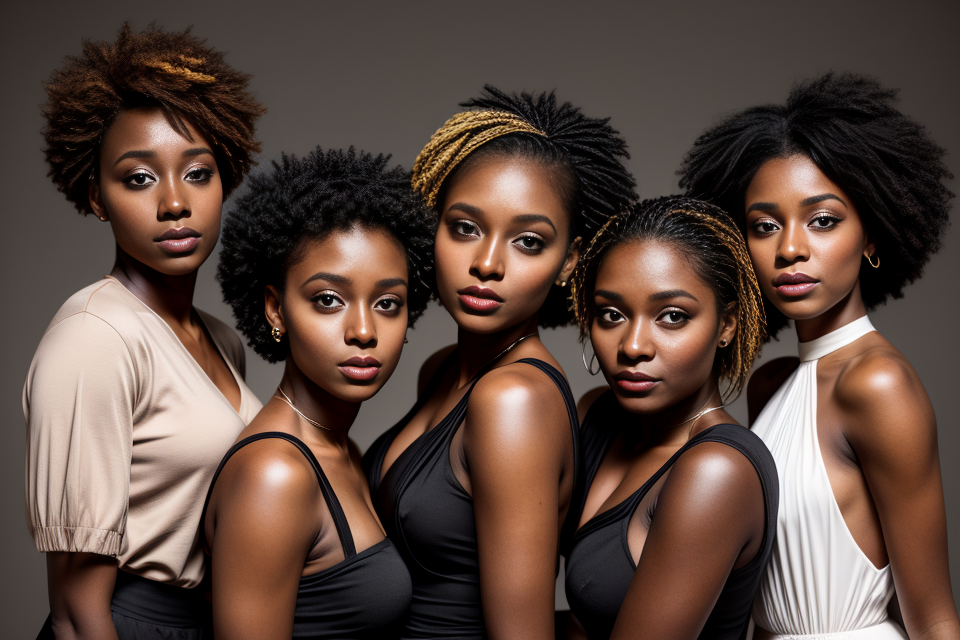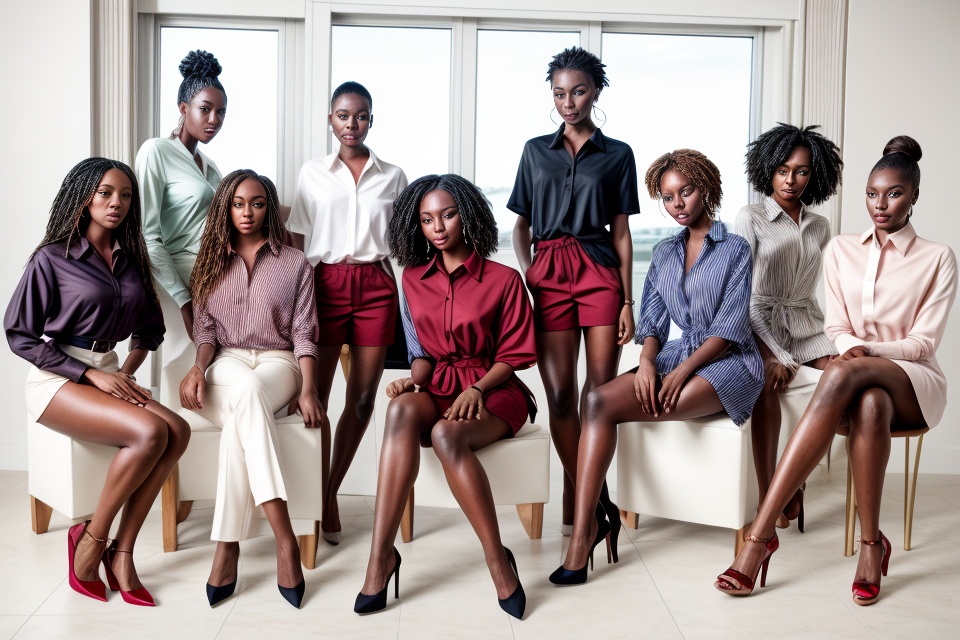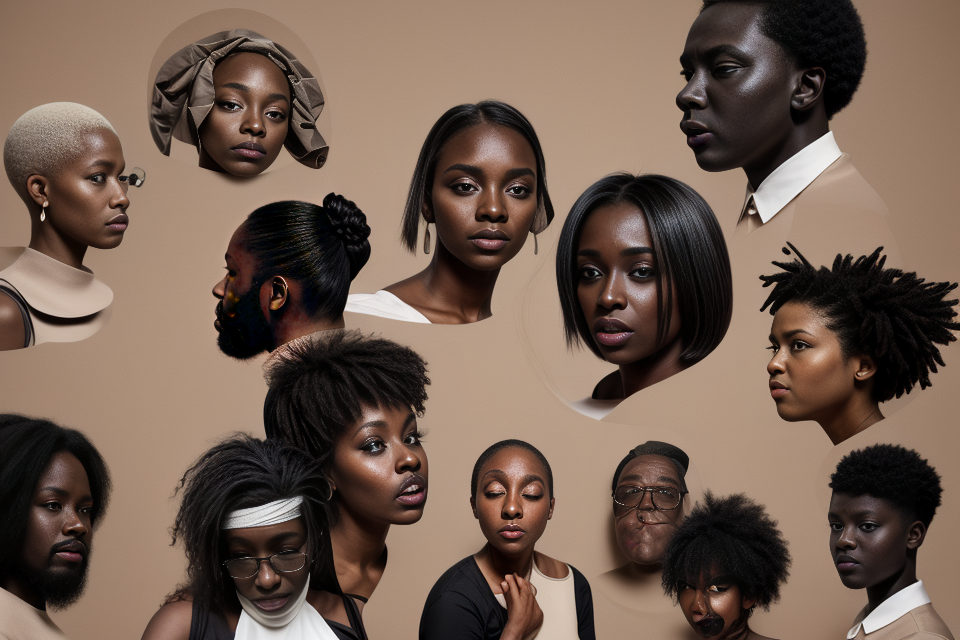Cultural and societal influences
Media portrayal of beauty standards
Throughout history, media has played a significant role in shaping societal beauty standards. The representation of skin color in media can perpetuate harmful stereotypes and influence people’s perceptions of attractiveness. In many societies, lighter skin is often associated with beauty, success, and social status. This portrayal is prevalent in advertisements, movies, and television shows, which can reinforce the idea that lighter skin is more desirable.
Historical context of colorism
Colorism refers to the discrimination or prejudice against individuals with darker skin tones compared to those with lighter skin tones. This phenomenon has deep roots in history, with instances of slavery and colonialism playing a significant role in the development of colorism. In many societies, lighter-skinned individuals held more power and status, while those with darker skin were often marginalized and subjected to discrimination. This historical context has contributed to the perpetuation of colorism in modern times.
Social hierarchy and discrimination based on skin color
The social hierarchy based on skin color has led to discrimination and prejudice against individuals with darker skin tones. This can manifest in various forms, such as limited access to education, employment, and social opportunities. In some cases, discrimination based on skin color can also result in physical violence and harassment. This ongoing social hierarchy has a profound impact on people’s self-esteem, mental health, and overall well-being, further reinforcing the idea that lighter skin is more attractive or desirable.
The question of what is the most attractive skin color has been a topic of debate for centuries. The idea of beauty is subjective and varies from person to person, culture to culture, and even within individuals themselves. What one person finds attractive may not be the same for another. Skin color is just one of the many physical characteristics that can be perceived as attractive or unattractive. However, the concept of beauty goes beyond physical appearance and encompasses a person’s entire being. Therefore, it is important to understand that attraction is not solely based on skin color, but rather on a multitude of factors.
It is not appropriate to rank or label skin colors as more or less attractive, as this is a subjective and often culturally influenced notion. Beauty is a diverse and multifaceted concept that transcends skin color, and attraction is influenced by a wide range of factors such as personality, shared interests, and mutual respect. Embracing and celebrating diversity in all its forms, including skin color, is crucial for fostering a more inclusive and accepting society.
Embracing diversity in beauty standards
Celebrating all skin tones
Celebrating all skin tones means recognizing and appreciating the beauty in every shade, from the lightest to the darkest. It’s about acknowledging that everyone deserves to feel beautiful and confident in their own skin, regardless of their skin tone. Here are some ways we can celebrate all skin tones:
- Promoting inclusivity in fashion and beauty: The fashion and beauty industries have a long history of promoting a narrow definition of beauty that is often exclusive to one skin tone. To celebrate all skin tones, it’s important to promote inclusivity in these industries by featuring models and celebrities of diverse backgrounds and skin tones in advertisements and campaigns. This not only showcases the beauty of different skin tones but also encourages diversity and inclusivity in the industry.
- Highlighting the unique qualities of different skin tones: Each skin tone has its unique qualities and characteristics that make it beautiful. For example, lighter skin tones can appear radiant and youthful, while darker skin tones can appear rich and deep. By highlighting the unique qualities of different skin tones, we can appreciate the beauty in each one and encourage others to do the same.
- Encouraging self-love and self-acceptance: Ultimately, celebrating all skin tones is about encouraging self-love and self-acceptance. It’s important to recognize that beauty standards are subjective and can often be harmful, especially when they promote a narrow definition of beauty that excludes certain skin tones. By encouraging self-love and self-acceptance, we can empower individuals to embrace their own unique beauty and feel confident in their own skin, regardless of their skin tone.
Challenging conventional beauty standards
Reevaluating the media’s portrayal of beauty
The media has traditionally perpetuated a narrow and unrealistic definition of beauty, often showcasing a singular, predominantly white, and Westernized ideal. This standardized portrayal has not only contributed to the marginalization of individuals from diverse backgrounds but has also led to the exclusion of various physical features and traits that are inherently beautiful. To challenge conventional beauty standards, it is crucial to reevaluate the media’s portrayal of beauty and strive for a more inclusive and realistic representation of what is considered attractive.
Recognizing the importance of individuality and authenticity
In the pursuit of challenging conventional beauty standards, it is essential to emphasize the value of individuality and authenticity. Each person possesses unique qualities that contribute to their inherent beauty, and it is crucial to recognize and celebrate these individual differences. Encouraging self-expression and self-acceptance allows individuals to feel confident in their own skin, regardless of societal pressures or standards. By promoting individuality and authenticity, we can create a more accepting and diverse environment that values uniqueness over conformity.
Supporting diversity in fashion and beauty industries
Another crucial aspect of challenging conventional beauty standards is fostering diversity within the fashion and beauty industries. This includes promoting and supporting designers, makeup artists, and other professionals from diverse backgrounds, as well as featuring models and influencers with a wide range of physical characteristics. Encouraging inclusivity in these industries not only broadens the scope of beauty ideals but also empowers individuals from various backgrounds to feel represented and valued. Additionally, it is essential to support and shop from a diverse range of brands that cater to different skin tones, hair types, and body shapes, further promoting the acceptance of all beauty types.
Fashion tips for dark skin tones
Enhancing natural beauty
Embracing the unique undertones of dark skin
Dark skin tones have unique undertones that can be enhanced to enhance natural beauty. It is important to understand your undertone to determine the best colors for you. For example, if you have warm undertones, you may want to avoid colors that have a cool undertone such as blue or purple. Instead, opt for colors that complement your warm undertones such as gold, orange, and red.
Accentuating features with makeup and cosmetics
Makeup and cosmetics can be used to accentuate features and enhance natural beauty. For example, contouring can be used to define and enhance facial features such as cheekbones and jawline. Highlighting can be used to create a healthy, radiant glow. It is important to choose products that complement your skin tone and undertone.
Utilizing skincare for a healthy and glowing complexion
A healthy and glowing complexion is essential for enhancing natural beauty. It is important to have a consistent skincare routine that includes cleansing, toning, and moisturizing. Using products that are appropriate for your skin type and concerns is also important. For example, if you have dry skin, it is important to use a moisturizer that will hydrate and nourish your skin. Additionally, using sunscreen to protect your skin from the sun’s harmful rays is also important.
Overcoming common challenges
One of the most significant challenges that people with dark skin tones face is managing hyperpigmentation and dark spots. These can be caused by a variety of factors, including sun damage, hormonal changes, and acne. While there are many products available to help lighten these areas, it’s important to remember that these spots are a natural part of the skin’s pigmentation and should be embraced rather than hidden.
Another challenge that people with dark skin tones often face is finding the right shade of foundation and concealer. Many mainstream brands offer a limited range of shades that may not match the complexion of people with darker skin tones. This can make it difficult to find a product that provides full coverage without looking cakey or ashy. To overcome this challenge, it’s important to experiment with different brands and shades until you find the perfect match.
Finally, navigating the beauty industry’s lack of inclusivity can be a significant challenge for people with dark skin tones. Many beauty brands and influencers have historically overlooked people with darker skin tones, leading to a lack of representation and a sense of exclusion. However, there has been a growing movement in recent years to create more inclusive beauty standards and to celebrate the unique beauty of all skin tones. By supporting brands and influencers who prioritize inclusivity, people with dark skin tones can help to create a more diverse and accepting beauty industry.
Embracing dark skin tones in fashion
When it comes to fashion, dark skin tones can sometimes be overlooked or underrepresented. However, embracing and highlighting your skin tone can be incredibly empowering and beautiful. Here are some tips on how to do just that:
- Finding the right clothing colors and shades: The key to dressing for dark skin tones is to choose colors that complement and enhance your natural coloring. Darker colors like black, navy, and deep jewel tones like emerald and sapphire can be particularly flattering. Avoid white and light pastels, which can wash out your skin tone.
- Feeling confident and comfortable in one’s own skin: Confidence is key in fashion, and feeling comfortable in your own skin is a huge part of that. Embrace your natural beauty and don’t be afraid to show off your unique features.
- Being inspired by dark-skinned fashion icons and influencers: Look to celebrities and influencers who have embraced their dark skin tones and are rocking them confidently. From Lupita Nyong’o to Viola Davis, there are plenty of inspirational figures to look up to.
Remember, fashion is about self-expression and feeling good in your own skin. By embracing your dark skin tone and finding clothes that flatter your unique features, you can feel confident and beautiful.
FAQs
1. What is the most attractive skin color?
Answer: It is a common question that has been debated for centuries. The answer to this question is subjective and varies from person to person. Some people may find lighter skin tones more attractive, while others may prefer darker skin tones. It is important to remember that beauty is not just about the color of one’s skin, but also about inner qualities such as confidence, kindness, and intelligence.
2. Is there a scientific basis for preferring one skin color over another?
Answer: There is no scientific evidence to support the claim that one skin color is more attractive than another. In fact, the idea of skin color being linked to attractiveness is a cultural construct that has been perpetuated throughout history. It is important to recognize that all skin colors are beautiful and that attraction is not solely based on the color of one’s skin.
3. Can people change their skin color?
Answer: It is not possible to change the color of one’s skin. The color of one’s skin is determined by genetics and is influenced by factors such as exposure to the sun and the environment. Some people may try to change the color of their skin through the use of skin bleaching products, but these products can be harmful and are not recommended.
4. Is it wrong to prefer a certain skin color?
Answer: It is not wrong to have personal preferences when it comes to dating or relationships. However, it is important to recognize that attraction is not solely based on the color of one’s skin. It is also important to remember that people are more than just their skin color and that inner qualities such as kindness, intelligence, and confidence are more important in the long run.



